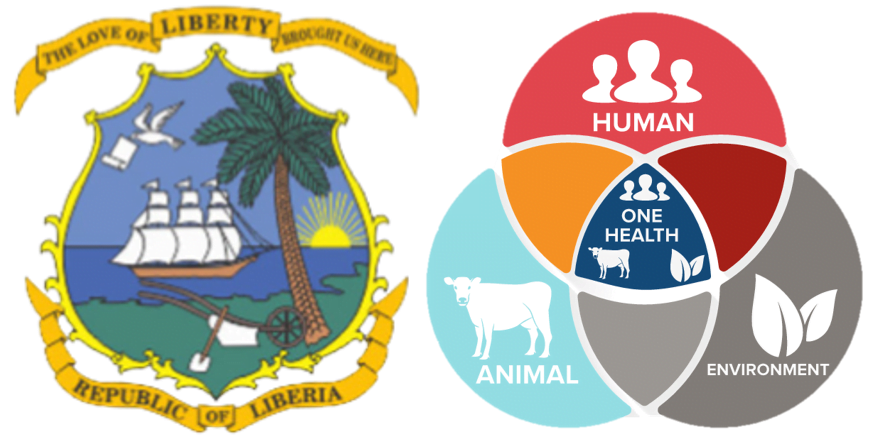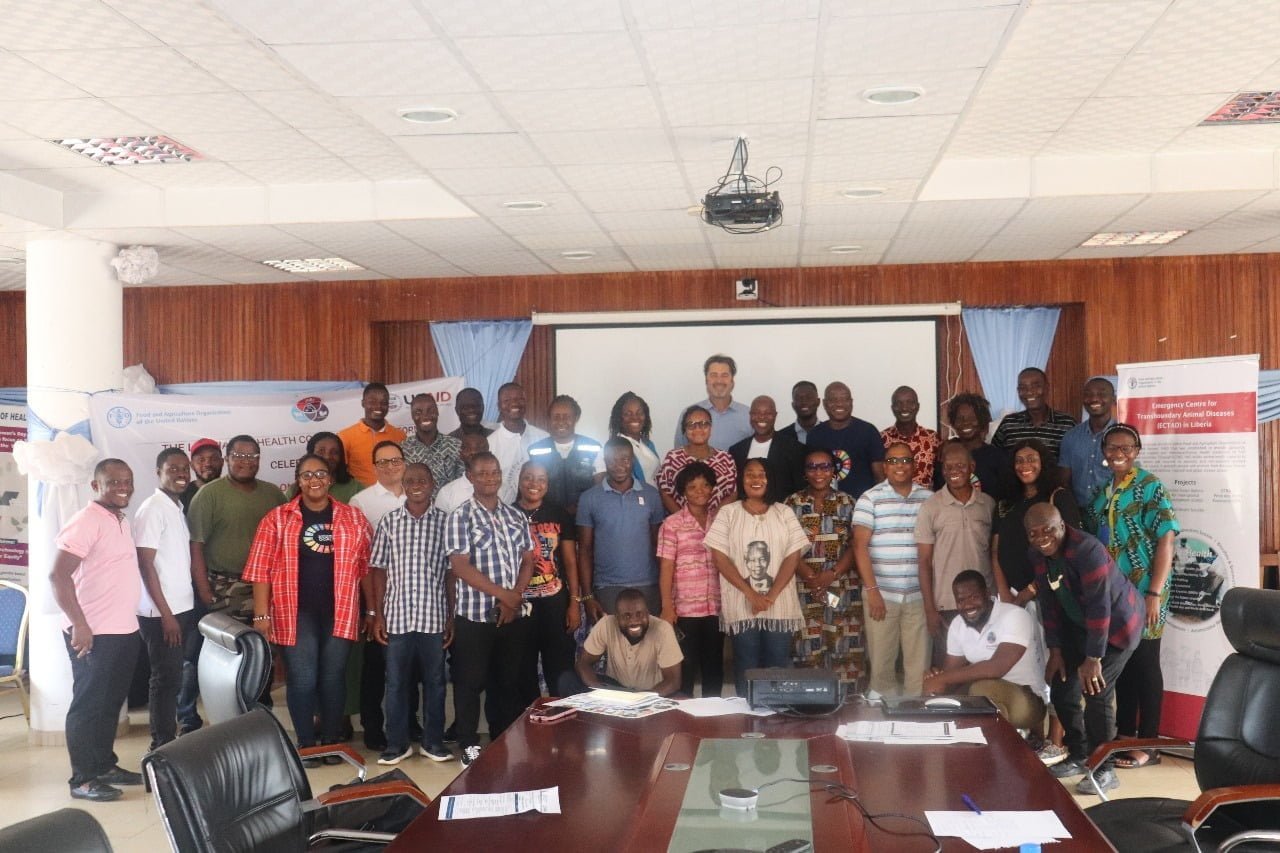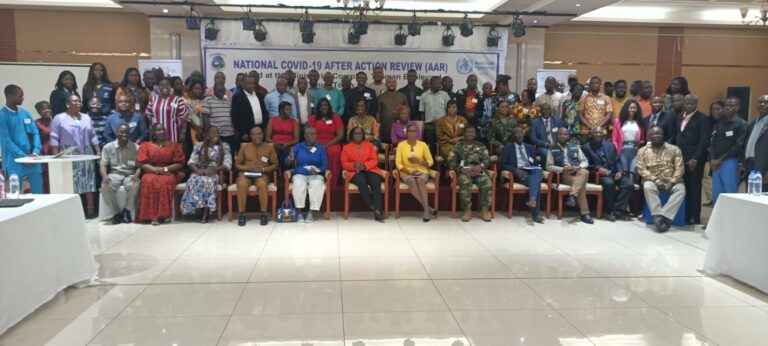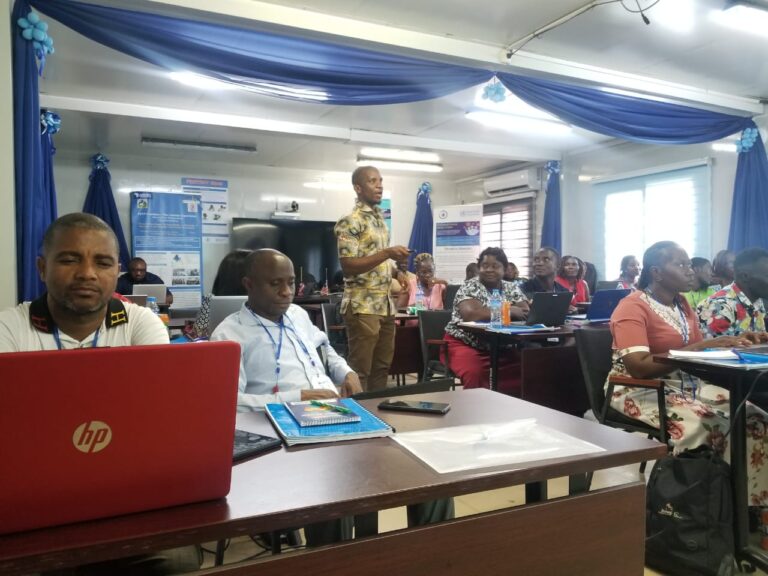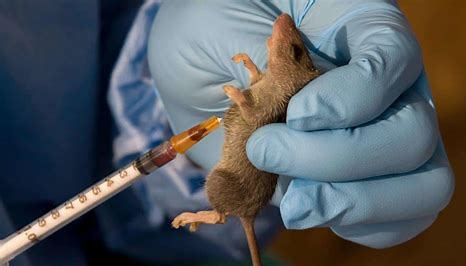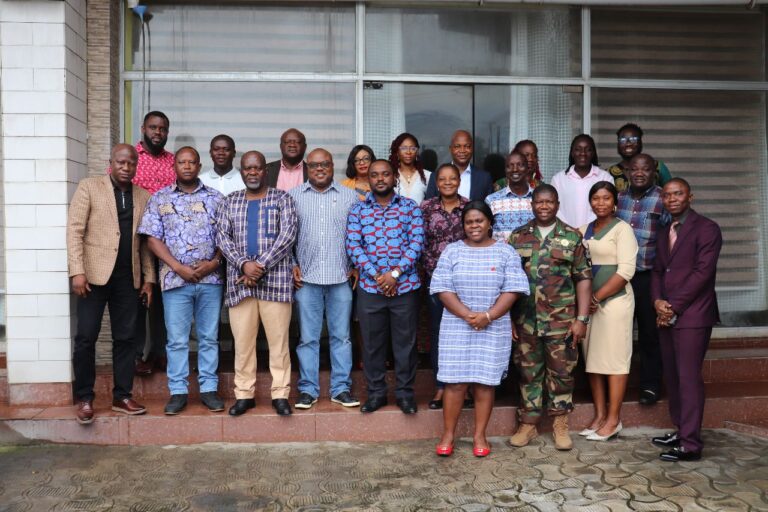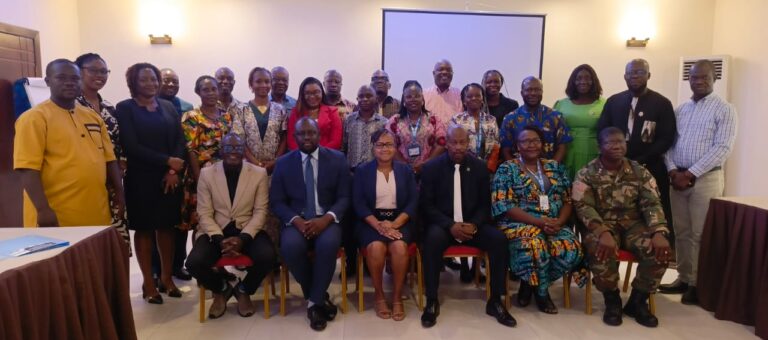Liberia Commemorates 8th Annual One Health Day
Established in June 2017, the Liberia One Health Platform on November 3, 2023, joined the world in commemorating the 8th Annual One Health Day, under the global theme “Connecting Air, Land, and Water”. The event brought together key stakeholders, including the Government’s ministries and agencies, and partners working in Liberia.
The theme for this year’s event signifies the interconnectedness of different environmental elements and their impact on human, animal, and environmental health. By focusing on air, land, and water, the theme emphasizes the importance of understanding how pollution, climate change, and other environmental factors in these domains can affect the health of humans, animals, and ecosystems. It highlights the need for collaboration and coordination among various disciplines such as human medicine, veterinary medicine, environmental science, and public health to address complex health challenges that arise from the interactions between people, animals, and the environment.
Speaking at the opening, Liberia’s partners, including the United States Agency for International Development (USAID), the United States Center for Disease Control and Prevention (US CDC), the World Health Organization (WHO), the United Nations Food and Agriculture Organization (UNFAO), EchoHealth Alliance, Breakthrough Action, International Rescue Committee (IRC), Africa One Health University Network (AFROHUN), and Africa Field Epidemiology Network (AFENET), reaffirmed their commitments to the One Health initiative in Liberia. Also, representatives of government’s line ministries and agencies, including the Environmental Protection Agency (EPA), Forestry Development Authority (FDA), the National Public Health Institute of Liberia (NPHIL), the Ministry of Agriculture (MOA), and the Ministry of Health (MOH), reiterated their institutions commitment to strengthening the One Health initiative in Liberia.
Meanwhile, a presentation by the EPA highlighted how the mismanagement of water affects human health – stressing the need for public awareness on the use of land and water to prevent pollution of both air and water. Also, the Coordinator of the Liberia One Health Coordination Platform, Sonpon Blamo Sieh, Snr. emphasized the need for concerted efforts in protecting the population against diseases caused by air and water pollution.
Since its launch in April 2016, One Health Day has served as a catalyst for global organizations, groups, and individuals coming together for seven consecutive years. This initiative has inspired numerous events worldwide, shedding light on the One Health approach. This approach addresses intricate challenges involving humans, animals, plants, and the environment.
One Health Day empowers advocates and practitioners across the globe, providing them with a robust platform. It enables them to advocate for a shift away from localized strategies when tackling emerging zoonotic infectious diseases, antimicrobial resistance, climate change, environmental pollution, food safety, comparative medicine, translational research, and other issues. Instead, it encourages a comprehensive, holistic approach to thinking, acting, and living – one that encompasses the well-being of all living beings.
The Liberian Story
The 2014-2016 Ebola virus disease (EVD) epidemic in West Africa, the biggest and most complex since the virus was first discovered in 1976, hit Guinea, Liberia, and Sierra Leone the hardest. Its rapid spread showed the need to improve health systems in these countries to respond to the weaknesses in surveillance, reporting, and response to outbreaks. `
In Liberia, about 4,807 lives were lost, accounting for a Case Fatality Rate (CFR) of 45% among 10,670 confirmed cases nationwide. Among these, 378 healthcare workers were infected, with 192 deaths, and a CFR of 50.8%.
The outbreak highlighted the intricate connections between human, animal, and environmental health. The initial transmission of the virus from animals to humans and its subsequent spread within human populations emphasized the importance of monitoring and understanding diseases at the human-animal-environment interface. The experience also highlighted the need for improved global preparedness and response mechanisms to address future pandemics. This experience marks the beginning of Liberia’s journey to the Global One Health Community.
In 2016, Liberia embraced the One Health concept – recognizing that investment in One Health will promote efficient alignment of limited human, financial and logistical resources. This led to the conduct of the Joint External Evaluation (JEE) utilizing the JEE 1.0 tool, resulting in an overall readiness score of 46%. This pivotal assessment led to the formulation of the National Action Plan for Health Security (NAPHS) for 2018 – 2022, designed to address identified gaps and recommendations from the 2016 JEE. Liberia’s second JEE was conducted in September 2023, with an overall score of 43.9%, considering 56 indicators, an addition of 20 indicators to the 2016 JEE indicators.
Later in 2017, Liberia launched the One Health Platform with a “Declaration of Commitment” signed by core line ministries and agencies, and further endorsed by former Vice President, H.E. Joseph N. Boakai. In 2018, the One Health Governance Manual was launched – defining the roles and responsibilities of the Steering Committee, the Technical Committee, the Technical Working Groups (TWGs), and the Coordinating Body. Subsequently, Liberia initiated its midterm assessment in 2019, with an overall readiness score of 49%, setting the stage for the development of the 2022 National Action Plan for Health Security (NAPHS) as well as the development of the One Health Strategic Plan. The One Health Governance Manual was later revised in 2021.
Impact
The Liberia One Health Platform operates on the principle of collaborative partnership, where the impacts achieved are intricately intertwined with the efforts of our esteemed partners. Notably, Liberia takes pride in the significant milestones achieved through the Liberia Field Epidemiology Training Program (LFETP), a project generously funded by the US-CDC and executed by the Africa Field Epidemiology Network (AFENET). Launched in 2015 as part of the nation’s commitment to the Post-Ebola Investment Plan for Building a Resilient Health System, the LFETP has successfully trained over 400 professionals in the domains of human, animal, and environmental health.
As of December 2022, the LFETP has empowered 292 individuals from 13 cohorts at the Frontline level and 95 from six Intermediate level cohorts. Furthermore, the program has equipped 28 Medical Directors with essential leadership skills through the Executive FETP, reinforcing the backbone of Liberia’s health system.
In a groundbreaking achievement facilitated by support from the United Nations Food and Agriculture Organization (UNFAO) and the World Bank-funded Regional Disease Surveillance Systems Enhancement (REDISSE) project, Liberia witnessed the training of more than 200 Community Animal Health Workers (CAHWs) for the first time. The REDISSE initiative, concluded on August 31, 2023, ushered in a new era by training and deploying 17 County Animal Health Surveillance Officers (CAHSOs) across the country. This initiative marked a historic moment, fostering collaborative disease investigations, laboratory diagnosis and research, and timely response to outbreaks, thus enhancing Liberia’s overall health resilience.
The concerted efforts of partners like the World Health Organization (WHO), the United States Agency for International Development (USAID), the World Bank, EchoHealth Alliance, GIZ, International Rescue Committee (IRC), and Breakthrough Action have played pivotal roles in driving various One Health activities within Liberia. Their contributions have been instrumental in disease surveillance, meticulous investigations, vaccination campaigns, effective risk communication and community engagement efforts, among other essential endeavors.
While Liberia has made remarkable strides in enhancing coordination and communication across sectors, we recognize that there is still much ground to cover. The journey towards a robust, integrated health system continues, fueled by the dedication of our partners and the unwavering commitment of Liberia to the cause of One Health. Together, we stride forward, ensuring a healthier, safer future for all.
